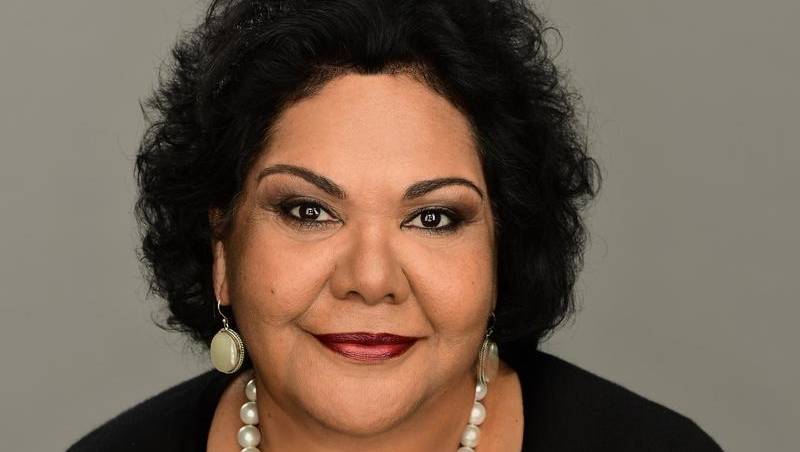She delivered a stirring speech upon accepting the award, dedicating the prize to her mother and grandmother who drove her determination to succeed, and promising to advocate for the voices of Indigenous women.
“Let me say I hear you. I hear your women’s voice. You are here, you are not silent. You are not invisible. Our voices are rising loud and clear,” she said.
“I am committed to making what you say count.”
She also asked the women and men in the room to stand at different points in her speech, saying to the women: “We must all be unshakeable in our resolve to be everything that we are and have been.
“We cannot bend for this world. Let the world bend for us.
And to the men: “Only together, shoulder to shoulder, will we raise the next generation into being.”
Oscar is a proud Bunuba woman from the remote town of Fitzroy Crossing in Western Australia’s Kimberley region.
I am truly honoured to have received the #NAIDOC2018 Person of the Year Award. I dedicate this to my mother and grandmother – strong and independent Bunuba women. Because of them I can! pic.twitter.com/ltwFiffhfP
— June Oscar (@June_Oscar) July 13, 2018
She’s Australia’s Aboriginal and Torres Strait Islander Social Justice Commissioner, becoming the first Indigenous woman to be appointed to the role in 2017.
Oscar has long been a strong advocate for Indigenous Australian languages, social justice, women’s issues, and for reducing Fetal Alcohol Spectrum Disorder (FASD).
Prior to winning the award and while speaking at the first national Aboriginal and Torres Strait Islander women’s conference late last week, Oscar said she had listened to more than 1000 voices of women and girls across different communities in Australia, and has found that “women are by far our most undervalued resource.”
“While we are not heard, structural racism pervades our institutions and public spaces.
“This racism intersects with multiple forms of discrimination, further entrenching intergenerational trauma.
“This has a disproportional impact on our women. When our work should be celebrated and applauded, we are too often exposed to punitive legal and welfare systems that diminish who we are, and consequently curtail all our people’s rights and freedoms.”
She said that when women’s positions are undermined, “The entire social fabric of life begins to unravels.
“A system which does not value the incredible worth and consequence of women’s actions is a broken system. And it is that system that breaks families and communities,” she said at the conference, in front of around 500 Indigenous women in Sydney.
“Our voices need to be at the front and centre of policy n, planning, design and implementation. Any less is not good enough.”
The formidable, inspiring, courageous women Aunty @June_Oscar wins Person of the Year #NAIDOC2018
She has been a role model for me, made me be strong in who I am, guided me and supported me through ups and downs. #BecauseOfHerWeCan #NAIDOC #IndigenousX pic.twitter.com/eIqfz9gbQi
— Shannan Dodson (@ShannanJDodson) July 13, 2018

